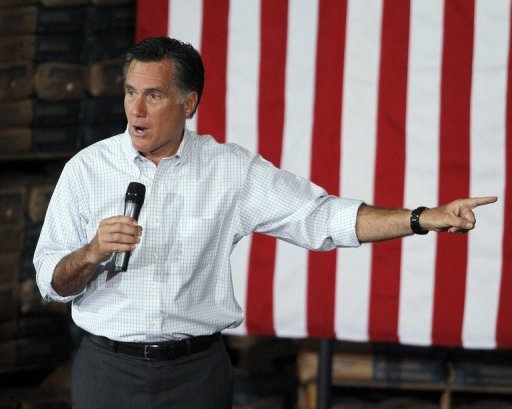US President Barack Obama fires up his first official campaign rallies on Saturday at an inopportune moment, just as the strong jobs-led recovery he hopes to ride to reelection seems to be stalling.
Obama was set to whip up young crowds on university campuses in the swing states of Ohio and Virginia, with a warm-up act by popular First Lady Michelle Obama, six months before election day on November 6.
No longer the charismatic prophet of hope who unveiled his first White House bid on a chilly winter day in 2007, Obama must run for reelection handicapped by a stop-start economic rebound that many voters do not yet feel.
He is scarred by three-and-a-half years of political combat in hyper-partisan Washington and the worst economic crisis since the 1930s, which quickly doused the euphoria which greeted his historic 2008 election win.
Conflicting economic signals and the stubbornly slow rebound make it tough for him to adopt an incumbent president’s best argument — that voters are better off than when he took office.
But Obama plans to make the case that he averted a second Great Depression and that his rich Republican foe Mitt Romney wants to return to the policies of tax cuts for the wealthy and lax regulation that unleashed the crisis.
Romney, who must almost certainly win Ohio to have a shot at capturing the White House, welcomed Obama to the bellwether state with a simple message: “Where are the jobs?”
Obama will counter by sketching a vision of an economy that benefits all Americans, not just the rich, and laud his foreign and security policies, including the killing of Osama bin Laden.
Republicans have scoffed at Obama’s “official” launch, accusing him of conducting months of campaigning and multi-million dollar fundraising under the guise of official events linked to his presidential duties.
An average of national opinion polls by the RealClearPolitics website shows Obama with a narrow three-point lead over Romney — 47 to 44 percent.
The president’s approval rating generally sits in the high 40s, just below the 50 percent threshold that presidents need to feel confident about reelection.
Obama seems to have an easier route to power than Romney on the US political map, with a number of credible paths to the 270 electoral votes needed to win the election in a dozen or so battleground states.
In Ohio, Obama led Romney 44 to 42 percent, in a Quinnipiac University poll this week which augured a tight battle for a state where the unemployment rate stands at 7.5 percent, below the national average of 8.1 percent.
In 2008, Obama became the first Democrat since the 1960s to win the former southern Republican bastion of Virginia, and hopes to exploit the state’s influx of skilled minorities and affluent voters to win again this year.
In a Washington Post poll Thursday, the president led Romney by seven points in the state, where unemployment is also lower than nationally, at 5.6 percent.
The president is seen as more likable than Romney in most polls, and enjoys edges on national security, and among crucial demographic groups like women and Hispanic voters that could decide the election.
But he is vulnerable on the key issue — the economy, with unemployment over eight percent, amid confusing signals about the state of the recovery and sharp attacks from Romney, who is running under a slogan of “Obama Isn’t Working.”
On Friday, Obama suffered a blow when a second straight month of disappointing job creation was revealed in Labor Department figures showing the economy pumped out only a net 115,000 jobs in April.
US economic growth slowed sharply to 2.2 percent in the first quarter of this year, rekindling renewed fears that the recovery could slow again after a strong start in 2012 as it did in the previous two years.

COMMENTS
Please let us know if you're having issues with commenting.